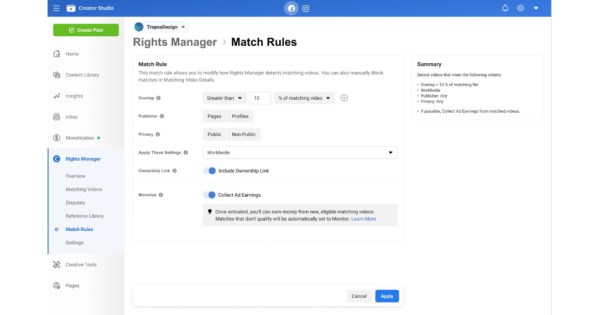Data Analyst FAQs
1. What does a data analyst do?
A: Data analysts collect, organize, and analyze data to help businesses make better decisions. They use their skills in math and statistics to find trends and insights in data sets, then communicate their findings to decision-makers.
2. What skills do I need to be a data analyst?
A: To be a successful data analyst, you need strong math and analytical skills. You must be able to think logically and solve problems, and have attention to detail. Additionally, you must be able to effectively communicate your findings to those who will make decisions based on your analysis.
3. What education do I need to be a data analyst?
A: Some data analysts have a bachelor’s degree in math, statistics, economics, computer science, or another quantitative field. However, with the right skills and experience, it is possible to become a data analyst without a college education in this area. More employers are also favoring candidates who have earned certifications with a sole focus in data analysis.
4. What are some common software programs used by data analysts?
A: Data analysts commonly use spreadsheet programs such as Microsoft Excel or Google Sheets to organize and analyze data. They may also use statistical analysis software, such as SAS or SPSS, to conduct more complex analyses. Additionally, data analysts may use database management software, such as MySQL or Oracle, to work with large data sets.
5. What are some common challenges faced by data analysts?
A: Data analysts may face several challenges in their work. First, they may need to clean or “wrangle” data sets that are messy or incomplete. Second, they may need to find trends or insights in large data sets, which can be difficult and time-consuming. Third, they may need to effectively communicate their findings to those who make decisions based on their analysis. Finally, data analysts may need to stay up-to-date on new analytical methods and software programs.
6. How long does it take to become a data analyst?
The time it takes to become a data analyst can vary depending on your prior experience and education, the amount of time you can commit to learning, and the specific skills and knowledge you need to acquire. A bachelor’s degree in a related field like statistics, computer science, or mathematics is required to become a data analyst. Obtaining a bachelor’s degree can take around four years of full-time study.
However, learning the necessary skills through self-study or a boot camp-style program is also possible. These programs can range from a few weeks to several months, depending on the intensity and duration of the program. Once you have the necessary education or skills, it may take some time to build up experience in the field before securing a full-time data analyst position.
7. What tools do data analysts use?
Data analysts use a wide range of tools to analyze and manipulate data. Here are some of the most common tools used by data analysts:
Microsoft Excel
SQL
Python
R
Tableau
Power BI
Hadoop
Spark
SAS
MATLAB
Google Analytics
Adobe Analytics
8. Is data analysis a good career?
Yes, data analysis is generally considered a promising career with solid job prospects and competitive salaries. The demand for data analysts is growing rapidly as more and more companies realize the importance of data-driven decision-making. With the right skills and experience, data analysts can advance to more senior roles such as data scientist or analytics manager. Additionally, the skills required for a data analyst role are transferable across industries, allowing for a range of career opportunities.
9. Can anyone become a data analyst?
Having a background in computer science, mathematics, statistics, or related fields may make it easier to become a data analyst, but anyone with the right skills and determination can become a data analyst. The key is to gain proficiency in the necessary technical skills like programming languages (such as Python, R, and SQL), data visualization tools (like Tableau and PowerBI), database management tools, and the ability to analyze and draw insights from data.
Soft skills like communication, problem-solving, and critical thinking are also essential. While formal education in data analysis or a related field can be helpful, many online resources, courses, and boot camps are available for anyone interested in learning data analysis. With dedication and a willingness to learn, anyone can become a data analyst.
10. Is data analyst a coding job?
Yes, data analytics often requires coding skills. While some data analysis tools allow for visual manipulation of data without codings, such as Tableau, Power BI, or Excel, proficiency in programming languages like Python, R, SQL, and Java can be highly beneficial in performing advanced analysis and building custom data models. In addition, knowledge of programming and scripting languages can help automate repetitive tasks and streamline data analysis processes.
11. Is data analyst an IT job?
A Data analyst role is not necessarily an IT (information technology) job but requires working with IT tools and systems. Data analysis involves using statistical and computational techniques to derive insights from data, which can be applied in various industries such as healthcare, finance, marketing, and more. While data analysts need to have a basic understanding of IT tools, such as programming languages and database systems, their primary focus is on analyzing data and interpreting results to drive business decisions.
12. What is the difference between a data analyst and a data scientist?
Data analysts and data scientists are both data professionals, but there are some critical differences in their roles, skills, and responsibilities:
Role: Data analysts primarily work with structured data to derive insights and make data-driven decisions. Data scientists use structured and unstructured data to develop and implement predictive models and algorithms.
Skills: Data analysts require strong skills in data management, statistical analysis, data visualization, and business domain knowledge. Data scientists need advanced machine learning, programming, and data engineering skills.
Responsibilities: Data analysts typically focus on data cleaning, data analysis, and reporting, while data scientists focus on developing and deploying predictive models and algorithms that can drive business outcomes.
13. Can I become a data analyst without a degree?
Yes, it is possible to become a data analyst without a degree. While having a degree in a related field, such as computer science, statistics, or mathematics, may be preferred by some employers, it is only sometimes a requirement.
To become a data analyst without a degree, you can gain the necessary skills through self-learning, online courses, boot camps, or relevant certifications. You can learn programming languages like Python or R, SQL, and data visualization tools like Tableau or PowerBI.
Creating a strong portfolio of personal projects and participating in online communities or hackathons can also help demonstrate your skills to potential employers. Additionally, networking and reaching out to professionals in the field can help you learn more about the industry and increase your chances of finding job opportunities.
14. Can you learn data analytics on your own?
Yes, it is possible to learn data analytics on your own. Many online resources are available for learning data analytics, including tutorials, courses, and online communities.
In addition to online learning, you can gain practical experience by working on personal projects, participating in data analysis competitions, or contributing to open-source projects. Networking with other data analysts and attending industry events can also help you gain knowledge and insights into the field.
However, it’s important to note that while it is possible to learn data analytics on your own, a formal education or relevant work experience can provide valuable credentials and networking opportunities.
15. Is data analytics math-heavy?
Yes, data analytics is a math-heavy field. A solid understanding of mathematics, including statistics, is essential for data analysis. Data analysts need to be able to work with large datasets, use statistical methods to analyze the data and apply mathematical models to interpret the results. They may also need programming languages like Python and R to write and run statistical models and algorithms. While a foundation in math is essential, it’s also important to note that data analysts can use various tools and software to help with the heavy lifting, such as Excel, Tableau, and PowerBI.
16. Is data analyst a high salary job?
Data analyst positions can offer competitive salaries, especially with experience and expertise. However, actual salaries may vary depending on the industry, location, and company size.
17. Can a fresher become a data analyst?
Yes, fresh graduates with relevant degrees and analytical skills can start their careers as entry-level data analysts. Gaining experience through internships, projects, or certifications can enhance their chances of landing a data analyst position.









